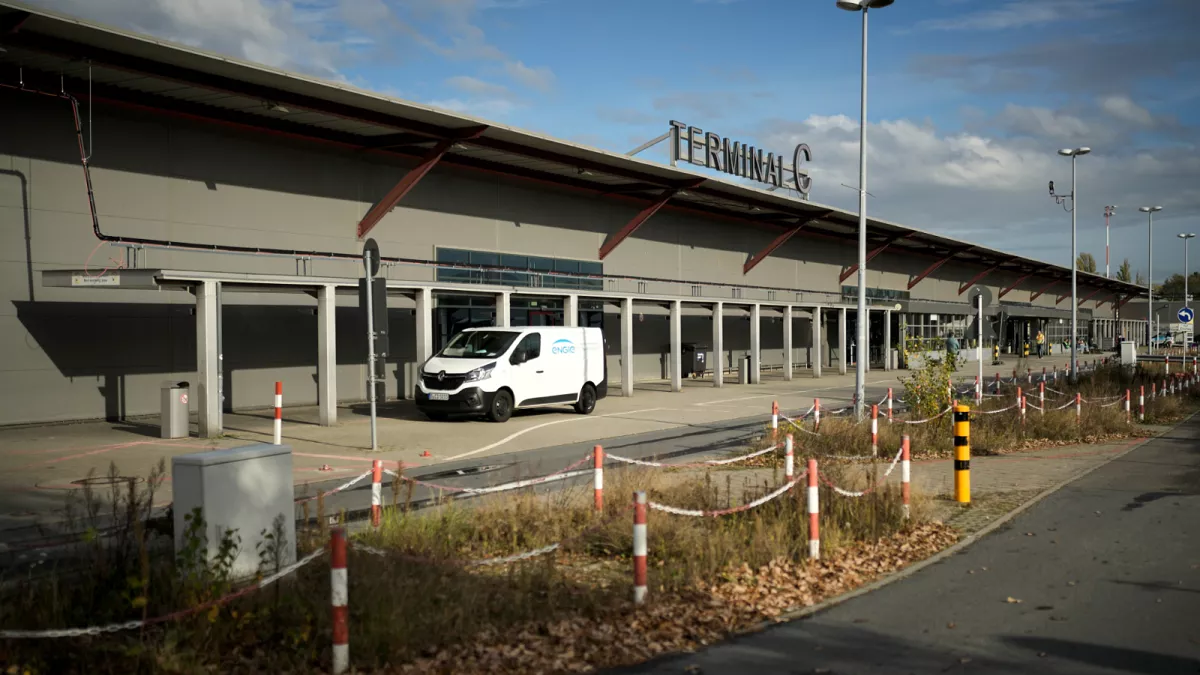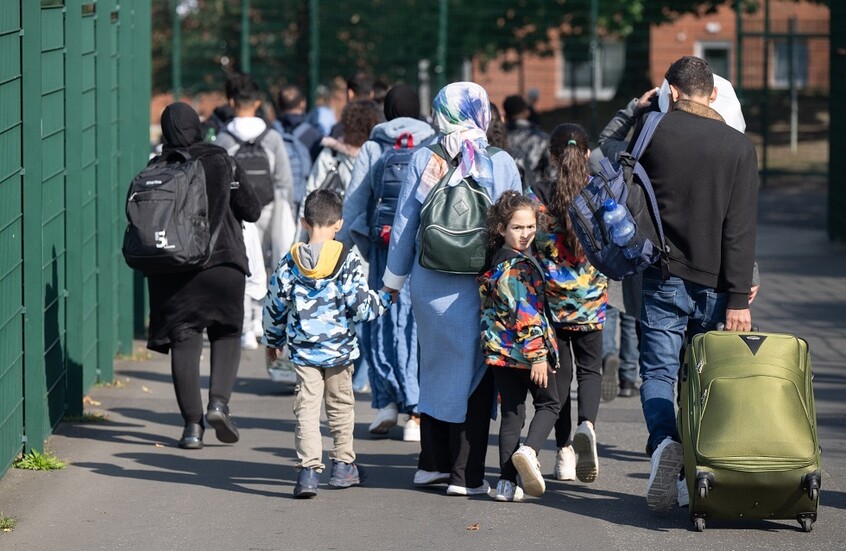Kansel Kiziltepe, a member of the Senate for the Integration District in Berlin and a member of the Social Democratic Party, has called for reducing the size of refugee accommodation at Tegel Airport, which has become a refugee accommodation center, because refugees are increasingly accommodated in large accommodation facilities in light of the lack of living space in Berlin.
The plan is to reduce the size of the emergency center housing refugees in the Tegel area size next year,
Kiziltepe told the German Press Agency, “Our goal is to reduce the number of emergency accommodation places. Aside from the very high costs, such large housing can cause many problems for both residents and their integration.”
Kiziltepe criticized the conditions of refugees in Tegel, where 14 people sleep in a small space without privacy, as well as it lasts for long periods since refugees do not know when they will leave the place.
The Tegel accommodation centre currently has 6,500 emergency accommodation places available.
The centre currently accommodates 5,000 people. The accommodation is divided into small compartments that do not provide privacy. Another 1,000 places are planned to be added in the parking area before the end of this year.
The licences for these large places will expire in 2025.
The government has not announced the situation after the licence expires. Kızıltepe said “We cannot predict what will happen after that, but our goal is to reduce the emergency accommodation places completely, and instead we demand that refugees be accommodated in a decentralized manner.”
According to the plans approved by the Senate, 16 new container villages for refugees are supposed to be built by next year, 10 of which will open in March 2025. In addition to the construction of 2,000 new accommodation places during this year, the plan also includes the construction of 3,000 places with good specifications before the end of the year, including residential apartments.
The new places will accommodate between 100 and 570 people per facility.
The senator reiterated his proposal for a “fixed community price”, which is the amount that regions should receive from the state annually for each place that the regions provide.
According to Kızıltepe, incentives should be created to support regions that make more efforts to provide new places, as some regions achieve more than others do, and this should be supported due to the increasing costs such as social infrastructure.
Kızıltepe proposed allocating 690 euros annually per place as a new housing financing system, a proposal that is currently being discussed at various levels, according to the senator.
The regions cannot be left alone on this important issue, and the Senate must not use its plans to save billions from the state budget as an excuse to reject the flat rate. According to Kiziltepe, it is the duty of the Berlin Senate to support this issue of housing, as well as caring for and integrating refugees, which is a task that involves the whole city.





